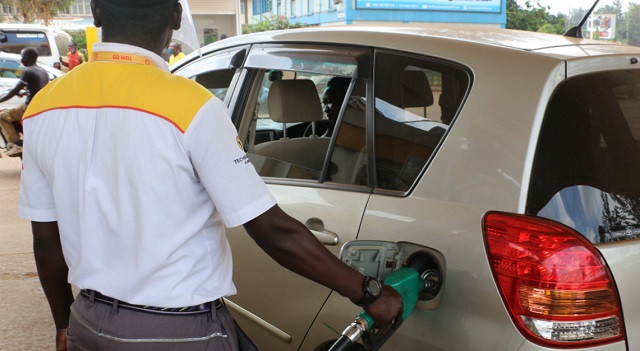The prices of fuel products in Uganda will be determined by the market forces of demand and supply even when the country starts producing its own petrol, diesel and kerosene or others.
How much Ugandans buy petroleum products will, therefore, depend on what is happening around the world and, to a lesser extent, in the Ugandan economy, according to the Petroleum Authority of Uganda (PAU).
It is not clear what the cost of refined fuel products will be by then compared to the current prices averaging sh5,100 a litre of petrol, and sh4,400 for diesel, and a sharp rise over two months by more than sh1,000.
The Petroleum Authority’s Director for Legal and Corporate Affairs Ali Sekatawa says that Ugandans should tame their expectations of the benefits of the industry. He says the country will continue importing finished products depending on the need, and that because it is a global industry, what happens in the world will continue affecting the local market.
The reprieve, however, will come from the fact that Ugandan products will have incurred lower costs of transportation, which could lower the cost of the final product.
However, Sekatawa says that even then, external factors will always influence petroleum prices, giving an example of what is happening in other countries. In the UK, one of the major producers, a litre of petrol costs 7,648 Shillings (2,138 US Dollars), while in Nigeria, it goes for 1,430 Shillings (40 US Cents), with the government subsidizing the cost by more than half.
The Nigerian government spends about 7 billion dollars per year on oil subsidies, and periodically announces the ‘official retail price.’ Kenya, which has no refinery, subsidizes a litre of fuel by about 700 shillings, which currently stands at about 4,200.
The country also makes periodical announcements of new fuel prices, like most others in the region, despite having no products of its own. Giving an example of the western countries, Sekatawa says having oil is not a guarantee in any country that the prices will be low.
Uganda is not expected to have its own petroleum products until after 2026 when the refinery will have been completed and in operation. Currently, the commercial development of the oil and gas industry has started with several projects ongoing, which will lead to the production of Crude, by 2025, according to the government and the oil companies.
The crude produced then will all be exported by pipeline through Tanzania, until a refinery, expected to initially refine 30,000 barrels a day, is built. The Final Investment Decision is yet to be made for the refinery project, which will include the construction of a refined products pipeline to a refined products terminal in Mpigi district.
Sekatawa says, therefore, Ugandans should not confuse the 2025 ‘first production’ to mean petrol or diesel, but crude for export.
He was giving an update on the industry, and what to be expected by the population, as the impact of the oil and gas industry on the economy. Despite this, however, Sekatawa said a lot of benefits will accrue not only in form of investments and job opportunities for Ugandans between now and then but also in form of taxes.
After the expected production of crude, the country’s tax revenues are expected to be boosted by at least another 8 trillion shillings from petroleum revenues going by the current rates. And Sandra Kataire, the Assistant Commissioner of Petroleum and Mining, says these estimates are based on a probable cost of a barrel of crude at 60 dollars. Currently, a barrel costs 110 dollars.
Kataire says the incentives that have been given to the investors in oil and gas, particularly the construction of the East African Crude oil pipeline, were aimed at making gains elsewhere in the industry, where the government thinks, it will get more value for the product.
If you would like your article/opinion to be published on Uganda’s most authoritative news platform, send your submission on: [email protected]. You can also follow DailyExpress on WhatsApp and on Twitter (X) for realtime updates.



